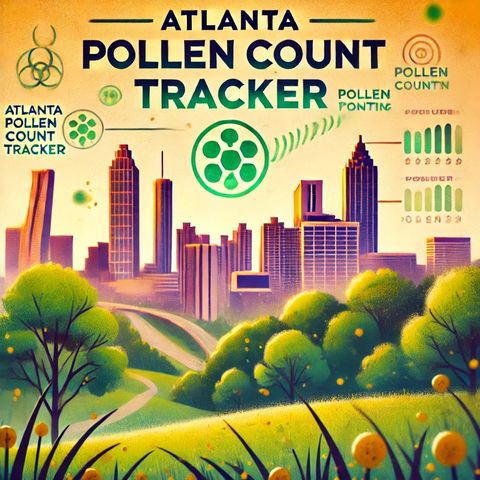9 NOV 2024 · Atlanta, Georgia, is well-known for its lush vegetation and beautiful landscapes, but with its abundance of greenery comes the inevitability of pollen, a significant concern for allergy sufferers. As we approach the late fall season on November 9, 2024, understanding the anticipated pollen count and levels becomes crucial for residents managing allergies or respiratory issues.
Today, factors influencing the pollen count in Atlanta include local tree and grass pollination cycles, recent weather patterns, and regional climate conditions. In November, tree pollen typically experiences a significant decline, as trees enter their dormant period. The most prevalent tree pollens in the early part of the fall are usually from oak, pine, and birch. However, by November, these counts are generally low or negligible.
Grass pollen in Atlanta is another consideration, even into the fall. While grass pollen levels are usually higher in late spring and summer, lingering warm temperatures can sometimes extend their season. However, during this part of the year, grass pollen counts typically fall to minimal levels as cooler temperatures set in.
Weeds, particularly ragweed, remain the primary pollen producers during this time of year. While ragweed season generally peaks during late summer and early fall, it can persist into November, contributing to higher pollen levels on warmer days. Throughout autumn, weather patterns such as rain or frost can help reduce airborne pollen, providing relief to allergy sufferers. However, Atlanta's mild climate can allow for continued weed pollen presence beyond the typical end of the ragweed season.
Today's specific weather conditions will have a direct impact on pollen levels. With the current temperature range forecasted to be mild for this early November day in Atlanta, combined with moderate humidity levels, pollen levels could be moderate, particularly for lingering weed sources. If the region has experienced recent rainfall, pollen levels may be on the lower side today as rain can help wash pollen particles from the air.
For residents anticipating today’s pollen count, it would be advisable to check local pollen forecasts or air quality reports from trusted sources such as the Atlanta Allergy & Asthma Center or the American Academy of Allergy, Asthma & Immunology. These forecasts offer detailed insights into daily and weekly pollen levels, allowing individuals to plan their outdoor activities accordingly.
For those with pollen sensitivities, consider taking preventative measures like keeping windows closed during high pollen hours, typically in the early morning, using air purifiers indoors, and monitoring local pollen forecasts before scheduling prolonged outdoor activities. Over-the-counter or prescribed medications can also help manage symptoms effectively.
In conclusion, while the late fall season in Atlanta generally ushers in lower pollen levels compared to the spring and summer months, weed pollen, particularly from ragweed, can still affect sensitive individuals. Staying informed through reliable local forecasts will remain key to managing personal exposure and symptoms today.


